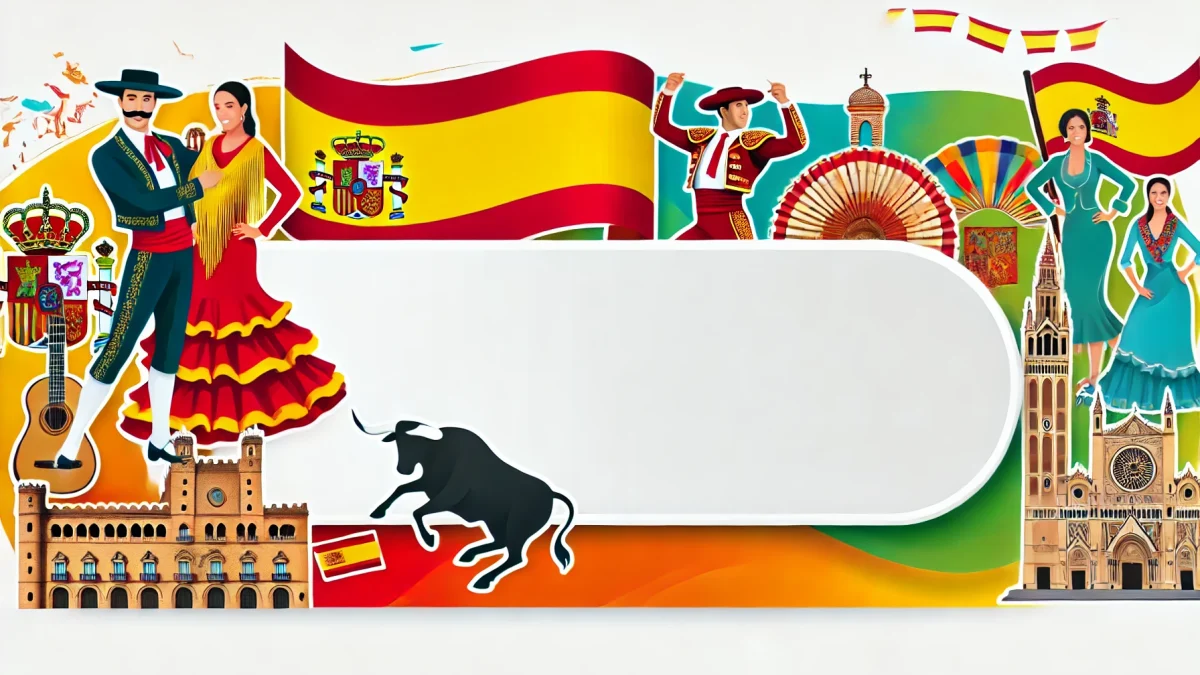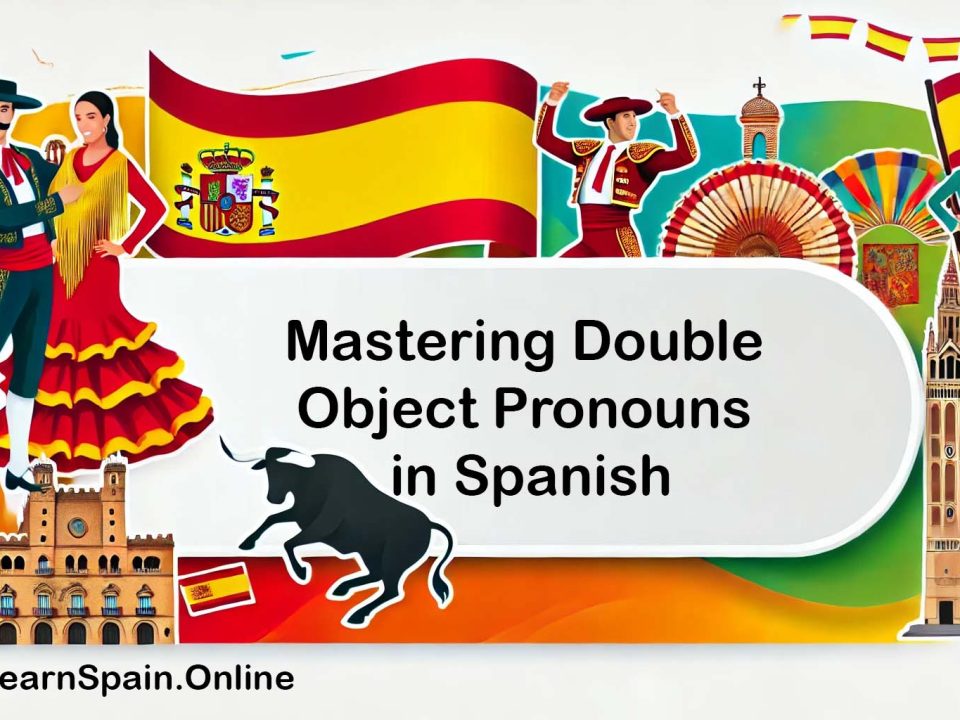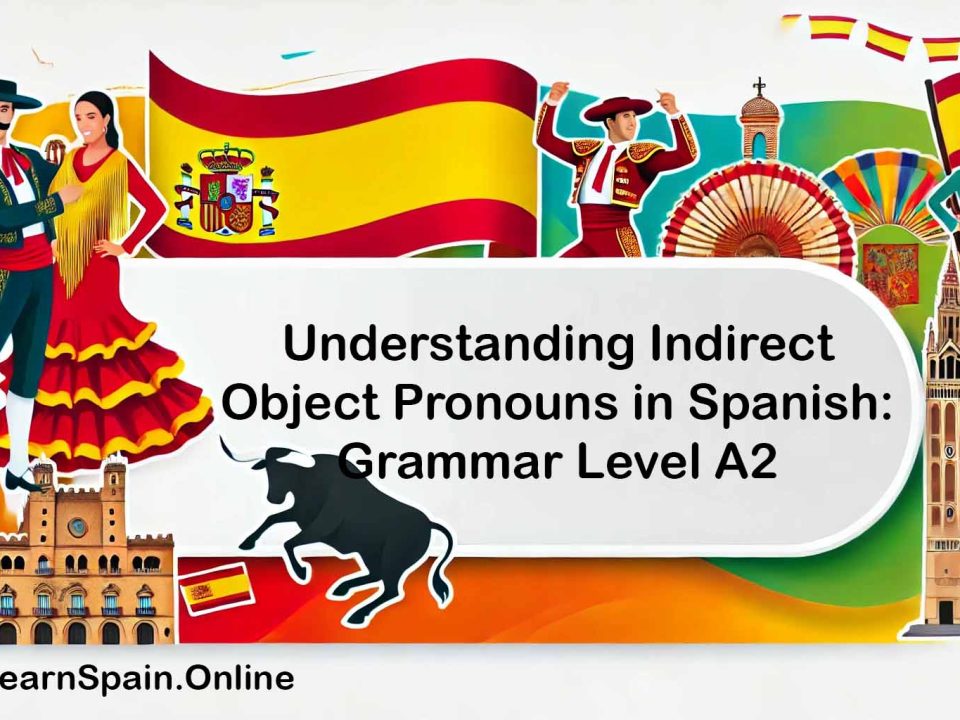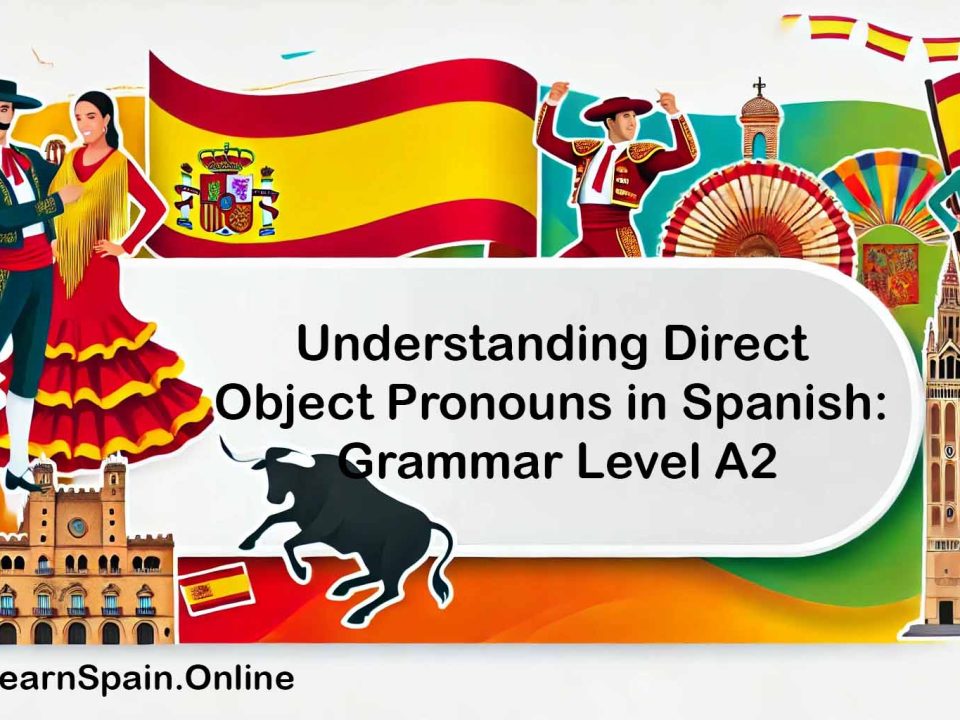
Understanding the Verb “Haber” (There is/There are) in Spanish
July 30, 2024
Understanding Commands (Imperative Mood) in Spanish
July 30, 2024Reflexive Verbs in the Past Tense
Understanding reflexive verbs and their conjugation in the past tense is crucial for anyone learning Spanish at an A2 level. Reflexive verbs are verbs where the subject and the object are the same, indicating that the action is performed on oneself. This guide will explore the usage and conjugation of reflexive verbs in the past tense, providing numerous examples to help you master this aspect of Spanish grammar.
What Are Reflexive Verbs?
Reflexive verbs are used when the subject performs an action on itself. In Spanish, reflexive verbs are accompanied by reflexive pronouns (me, te, se, nos, os, se) that match the subject of the verb. These pronouns are placed before the conjugated verb or attached to the end of an infinitive or gerund.
Reflexive Pronouns:
- Me: myself
- Te: yourself (informal)
- Se: himself/herself/yourself (formal)/itself
- Nos: ourselves
- Os: yourselves (informal, used in Spain)
- Se: themselves/yourselves (formal)
Conjugating Reflexive Verbs in the Past Tense
To conjugate reflexive verbs in the past tense, you need to place the appropriate reflexive pronoun before the conjugated verb. In the past tense, reflexive verbs can be conjugated in both the preterite and imperfect tenses. This guide will focus on the preterite tense.
Conjugation in the Preterite Tense
Here’s how to conjugate a regular reflexive verb in the preterite tense:
Example Verb: Lavarse (to wash oneself)
- Yo me lavé (I washed myself)
- Tú te lavaste (You washed yourself)
- Él/Ella/Usted se lavó (He/She/You washed himself/herself/yourself)
- Nosotros/Nosotras nos lavamos (We washed ourselves)
- Vosotros/Vosotras os lavasteis (You all washed yourselves)
- Ellos/Ellas/Ustedes se lavaron (They/You all washed themselves/yourselves)
Examples of Regular Reflexive Verbs in the Preterite Tense
- Acostarse (to go to bed)
- Yo me acosté a las diez. (I went to bed at ten.)
- Tú te acostaste temprano. (You went to bed early.)
- Ella se acostó tarde. (She went to bed late.)
- Despertarse (to wake up)
- Nosotros nos despertamos a las seis. (We woke up at six.)
- Vosotros os despertasteis con el sol. (You all woke up with the sun.)
- Ellos se despertaron tarde. (They woke up late.)
- Vestirse (to get dressed)
- Yo me vestí rápidamente. (I got dressed quickly.)
- Tú te vestiste antes del desayuno. (You got dressed before breakfast.)
- Ellas se vistieron para la fiesta. (They got dressed for the party.)
Irregular Reflexive Verbs in the Preterite Tense
Some reflexive verbs are irregular in the preterite tense. Here are a few examples:
- Irse (to leave)
- Yo me fui (I left)
- Tú te fuiste (You left)
- Él/Ella/Usted se fue (He/She/You left)
- Nosotros/Nosotras nos fuimos (We left)
- Vosotros/Vosotras os fuisteis (You all left)
- Ellos/Ellas/Ustedes se fueron (They/You all left)
- Divertirse (to have fun)
- Yo me divertí (I had fun)
- Tú te divertiste (You had fun)
- Él/Ella/Usted se divirtió (He/She/You had fun)
- Nosotros/Nosotras nos divertimos (We had fun)
- Vosotros/Vosotras os divertisteis (You all had fun)
- Ellos/Ellas/Ustedes se divirtieron (They/You all had fun)
- Sentirse (to feel)
- Yo me sentí feliz. (I felt happy.)
- Tú te sentiste cansado. (You felt tired.)
- Ella se sintió enferma. (She felt sick.)
- Nosotros nos sentimos emocionados. (We felt excited.)
- Vosotros os sentisteis nerviosos. (You all felt nervous.)
- Ellos se sintieron tristes. (They felt sad.)
Using Reflexive Verbs in Different Contexts
Reflexive verbs can be used in various contexts to describe daily routines, personal care, emotions, and actions where the subject and object are the same.
Daily Routines
- Levantarse (to get up)
- Yo me levanté a las siete. (I got up at seven.)
- Bañarse (to take a bath)
- Tú te bañaste por la noche. (You took a bath at night.)
- Peinarse (to comb one’s hair)
- Ella se peinó antes de salir. (She combed her hair before leaving.)
Personal Care
- Cepillarse (to brush)
- Nosotros nos cepillamos los dientes después de comer. (We brushed our teeth after eating.)
- Afeitarse (to shave)
- Él se afeitó esta mañana. (He shaved this morning.)
Emotions
- Alegrarse (to be glad)
- Vosotros os alegrasteis con la noticia. (You all were glad with the news.)
- Enojarse (to get angry)
- Ellos se enojaron con el resultado. (They got angry with the result.)
Other Actions
- Caerse (to fall)
- Yo me caí en la calle. (I fell on the street.)
- Quedarse (to stay)
- Nosotros nos quedamos en casa. (We stayed at home.)
Practice Exercises
To reinforce your understanding of reflexive verbs in the past tense, try these exercises:
- Conjugate the Verbs: Write the correct preterite tense form of the following reflexive verbs:
- Lavarse
- Vestirse
- Irse
- Sentirse
- Despertarse
- Translate the Sentences: Translate the following sentences into Spanish using the correct reflexive verb forms:
- I got up at six in the morning.
- You (informal) felt happy with the results.
- She got dressed quickly.
- We had fun at the party.
- They went to bed late.
- Complete the Sentences: Fill in the blanks with the correct reflexive pronoun and verb form:
- (yo) a las ocho. (I woke up at eight.)
- (tú) antes de salir. (You got dressed before leaving.)
- (nosotros) en la casa de mi abuela. (We stayed at my grandmother’s house.)
- (ellos) contentos con la noticia. (They felt happy with the news.)
Conclusion
Mastering reflexive verbs in the past tense is essential for effective communication in Spanish, especially for describing personal actions and daily routines. By understanding the conjugation patterns and practicing their usage in sentences, you can enhance your ability to express yourself accurately in Spanish. Regular practice and application of these verbs will help solidify your understanding and build your confidence in using reflexive verbs in the past tense.
Integrate reflexive verbs into your daily Spanish practice, and soon you’ll be able to describe past actions and events with greater fluency and accuracy. ¡Buena suerte! (Good luck!)
Links:
Spanish Grammar
Spanish Vocabulary
Spanish Listening
Spanish Stories



